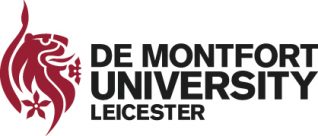Decolonising DMU: Developing an Anti-Racist Pedagogy of Tomorrow
| Festival of TaLEnt 25th June 2021 Decolonising DMU: Developing an Anti-Racist Pedagogy of Tomorrow Dr Hardeep K Basra is an Academic Learning & Development Consultant and a Co-Chair of the BAME Staff Network. Kaye Towlson is Library and Learning Services workstream lead for Decolonising DMU and Academic Team Manager (Information Literacy). Dr Melanie Crofts is Staff workstream lead for Decolonising DMU and a Senior Associate Professor in Law. Sumeya Loonat: Senior International Student Lecturer Session type: Live interactive breakout session (45 mins); We will provide an overview of where we are with the Decolonising DMU project (15 mins) and then break out into three separate rooms, which examine different areas of the project (30mins). Session outline: This session will provide an update of the work of Decolonising DMU which, at its heart, adopts a ‘whole systems’ approach to the entrenched inequalities prevalent in higher education institutions. Although a lot of work has been done at DMU to embed inclusive teaching practice there are still significant challenges to address the ‘whiteness’ of the curriculum and disrupting mainstream pedagogic approaches. In order for teaching practice to be truly inclusive a critical rethink of the entire curriculum and learning and teaching approaches is required. This workshop will give staff an opportunity to share ideas about how to decolonise the curriculum and learning and teaching practises. It will enable staff to discuss tangible steps HE teachers can take to challenge what is considered ‘central’ in their learning and teaching environment, giving the opportunity for diverse voices and experiences to be explored in their teaching, both in design and/or delivery. Specifically, the session will focus on three key areas: 1) It will draw upon the recent work undertaken to critically review and transform the Postgraduate Certificate in Academic Practice, as a basis to get new teachers in HE to conceptualise and position their teaching as truly inclusive and to consider anti-racist approaches to learning and teaching. It challenges existing scholarship of learning and teaching and pedagogic approaches claiming HEIs are reinforcing whiteness through knowledge, norms and behaviours which does not fully prepare academics to consider anti-racist practices or the impact of their teaching on diverse students. 2) It examines the development of anti-racist pedagogy through the power and composition of the reading list. It will acknowledge the perceived pedagogic authority and impact on students’ learning that reading lists have and speak to their role in connection, identity and belonging. Tools for decolonising the reading list will be offered, enabling a co-creative and discursive approach to this decolonising development. 3) Lastly, it explores the intersectionality of race and language within a teaching and learning context. There are significant barriers faced by students of colour in higher education and the mainstream framing of these students is usually viewed through a deficit model which is harmful as it perpetuates negative stereotypes and hinders progress to address racial inequalities. This session considers alternative approaches which enhance the student sense of belonging through the use of language and habitual learning and teaching practices. The aim of the breakout sessions will be an opportunity for staff to ask questions about the 3 areas and how they might adopt some of the good practice into their own teaching practices. The breakout rooms will be designed more as a conversation and to raise issues/questions about the areas in question. |
